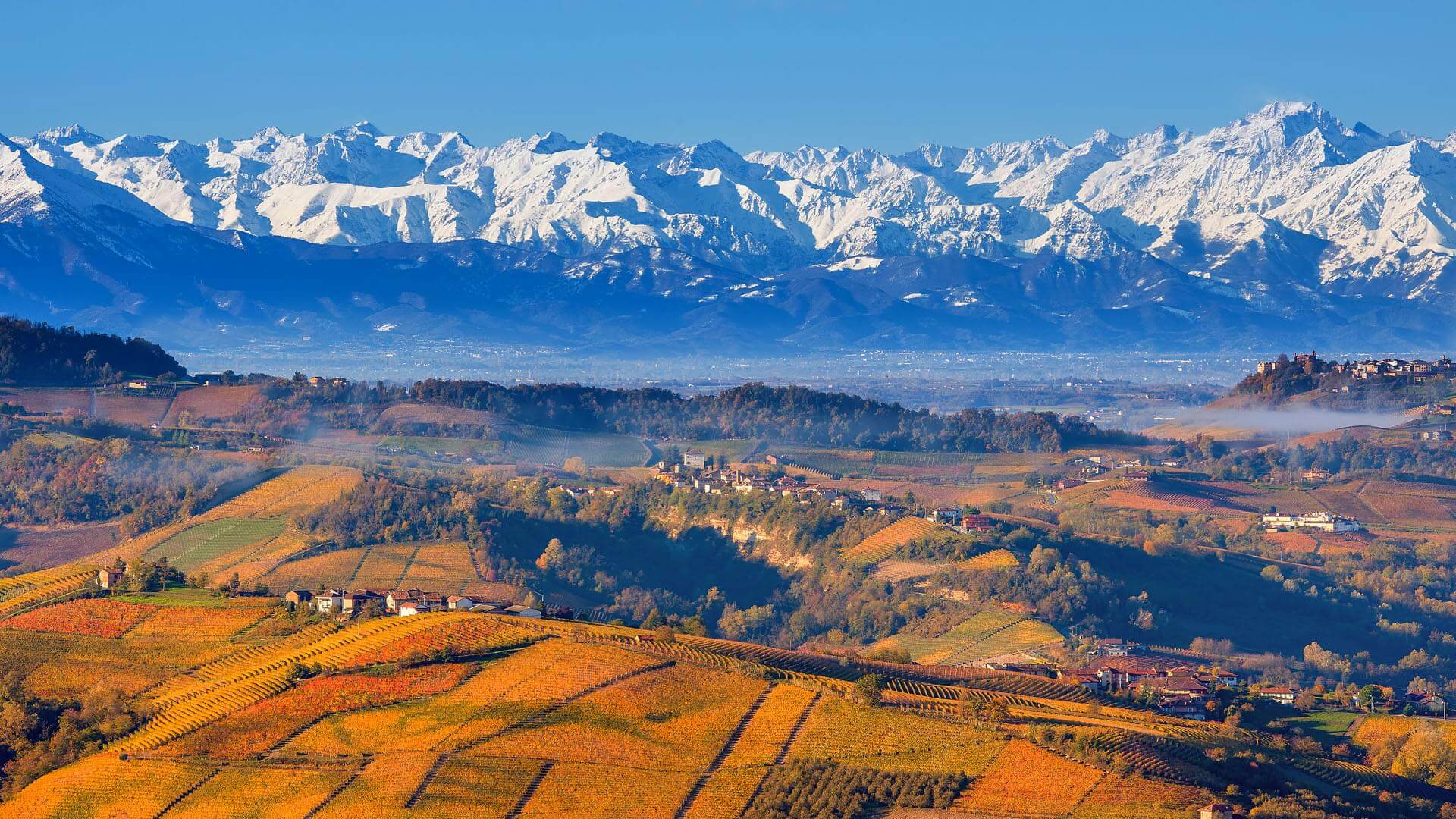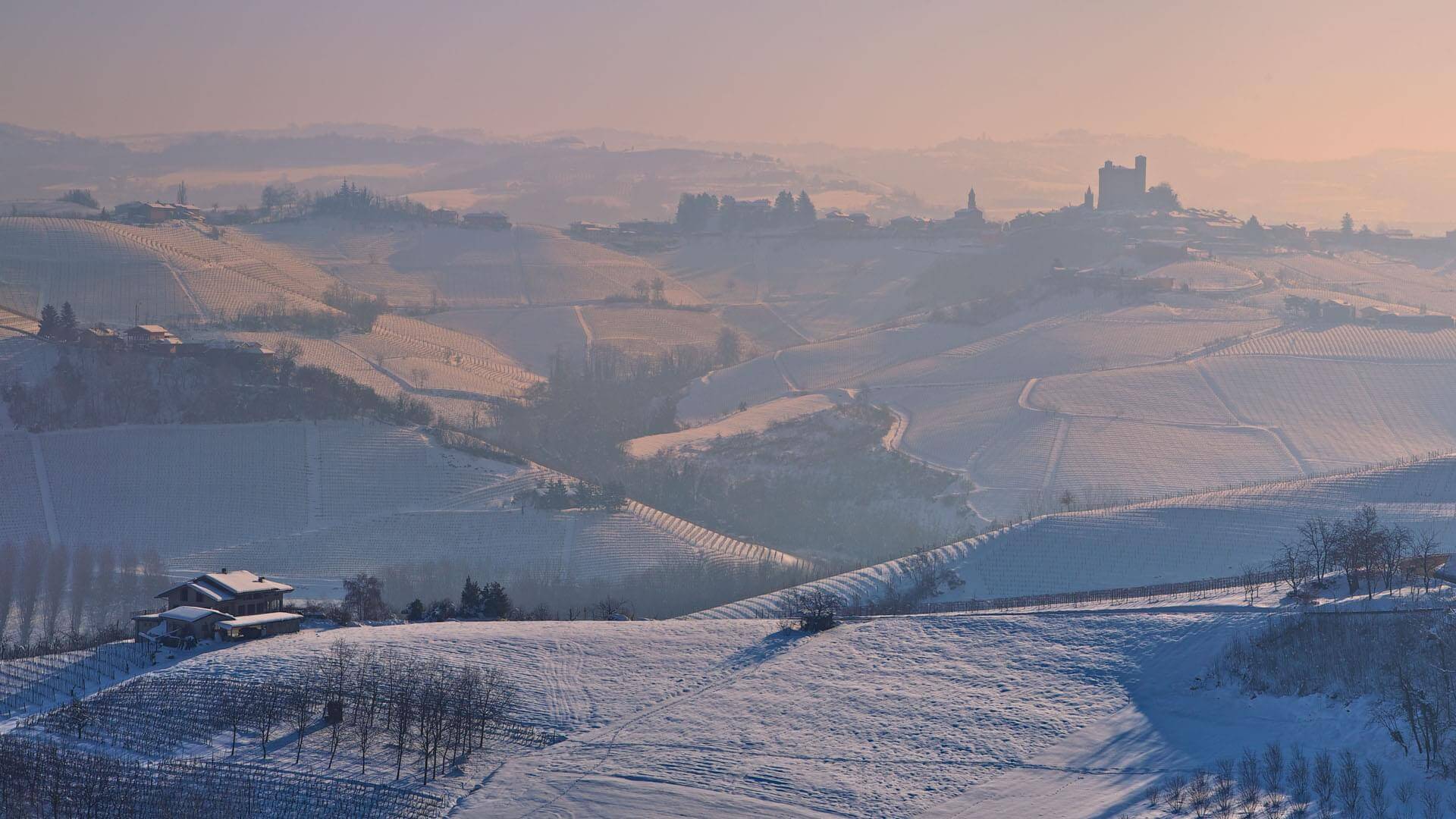White truffle, mist and traditions
Piedmont lies on the northwest of Italy with Switzerland to the north, France to the west and a picturesque Mediterranean coastline with Liguria’s fishing villages to the south – just an hour and a half’s drive away. This gorgeous and geographically diverse region is famous for its countless vineyards spread across its hills. In autumn they are painted bright red and yellow, while in winter the snow-white hills are covered with flowing graphic lines of vineyard rows.


The historical centre of the region is the city of Turin, the capital of once-rich and famous House of Savoy that laid the foundation for Italian unification. To this day, Piedmont remains the most significant and developed region of Italy.
Piedmont is also the gastronomical capital of the country; it is the region of white truffle and the most long-living wines in Italy. But unlike Tuscany where the best domains are still fairly young, the majority of great domains of Piedmont have been making wine since the end of the 19th – the beginning of 20th century. You can still find bottles of wonderful Barolo that date back to the 1900s.
The largest part of the winemaking domains in the region is situated in Langhe and on the Monferrato hills which rise into the mountains of Apennines in the southeast. There is a great range of wines made here: from the sparkling and fun Moscato d’Asti to serious classical wines from the Nebbiolo grape. It’s because of these wines – complex, structured Barolos and delicate Barbarescos – that the region is often called “the Italian Burgundy”. In a similiar way to Burgundy, many winemakers started selling wine from different lots with the name of the vineyard stated on the label. But some domains (like Bartolo Mascarello) remain true to the local traditions of making wines by mixing grapes from different lots like their ancestors did.
Every single village from the Barolo and Barbaresco area has its own style and its own vineyards, varying in terroir. And in every village there are domains that produce completely different wines. Some chase after fame and ratings from Antonio Galloni and James Suckling, and others prefer to make wine paying no heed to the famous names and the market’s demands – true wine.
Wines
- Barolo Riserva Monfortino-Giacomo Conterno
- Barolo-Bartolo Mascarello
- Barbaresco Montestefano-Rivella Serafino
- Barbaresco Asili Riserva-Bruno Giacosa
- Barolo Rocche del Falletto Riserva-Bruno Giacosa
- Barolo Monprivato-Giuseppe Mascarello
- Barolo Cascina Francia-Giacomo Conterno
- Barolo Villero-Giuseppe Mascarello
- Barolo Brunate-Le Coste-Giuseppe Rinaldi
- Barolo Bricco delle Viole-G. D. Vajra
- Barolo Santo Stefano-Giuseppe Mascarello
- Barolo Riserva-Giacomo Borgogno
- Barolo Rocche-Lorenzo Accomasso
- Barbaresco Asili-Bruno Giacosa
- Barolo Rocche del Falletto-Bruno Giacosa
- Barolo Albe-G. D. Vajra
- Dolcetto D'Alba-Rivella Serafino
- Barolo-Elio Sandri
- Barbera-Elio Sandri
- Barbera d'Alba-G. D. Vajra
- Nebbiolo-Elio Sandri
- Langhe Riesling-G. D. Vajra
- Classico Methodo Spumante-Bruno Giacosa
- Dolcetto d'Alba-G. D. Vajra
- Barolo Chinato-G. D. Vajra
- Moscato d'Asti-G. D. Vajra
- and 16 more wines...

0 Comments